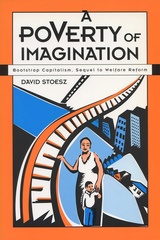
Eutaw was a sequel to his very successful 1855 novel, The Forayers, and thus completed the most comprehensive saga of the war in our literary history. It focuses on the battle of Eutaw Springs in 1781, which ended British domination of South Carolina. Prominent in this significant battle were Nathanael Greene, Light-Horse Harry Lee, and Francis Marion, about whom Simms would later write a biography. As with other volumes in the Arkansas Edition of Simms’s work, this volume includes a critical introduction by the editor and a Simms chronology, as well as appendices dealing with textual matters.

A novel of love, revenge, and redemption set during three crucial years of the Mexican Revolution (1910–13).
When an eccentric Mexican general dies and leaves his entire fortune to Isabel Brentt, the American daughter-in-law he never met, his widow suspects foul play and seeks revenge against the young woman.
This is a story of love, the backlash of revenge, and the choices that define us: A young lawyer sets off on a quest to find the truth about the general’s death. A bodyguard is ordered to murder the man he is supposed to protect. A ruthless criminal falls in love with a prostitute. A priest is forced to maintain an elaborate lie. An accused patricide seeks redemption through a brotherhood of criminals. Above all, it is Isabel’s exploration of the problem of evil and of prayer as a pathway to inner freedom.
Sylvia Montgomery Shaw invites readers to follow the continuing romance of Benjamín and Isabel as both seek their freedom against the backdrop of a brutal war and learn the unexpected strength that can come from one’s inner will.

Welfare reform was supposed to end welfare as we know it. And it has. The welfare poor have been largely transformed into the working poor, but their poverty persists. This hard-hitting book takes a close look at where we’ve gone wrong—and where we might go next if we truly want to improve the lot of America’s underclass.
Tracing the roots of recent reforms to the early days of the war on poverty, A Poverty of Imagination describes a social welfare system grown increasingly inept, corrupt, and susceptible to conservative redesign. Investigating the causes of the ongoing failure of welfare assistance, Stoesz focuses on the economic barriers that impede movement out of poverty into the American mainstream. He explores such issues as the heterogeneity of welfare families, generational welfare, inadequate benefits, the negative effects of time limits on welfare recipients, a fringe banking industry that exploits low-income families, the limited capacity of low-wage markets, and the unavailability of credit.
Stoesz suggests that a form of "bootstrap capitalism" would allow individuals and families to participate more fully in American society and achieve upward economic mobility and stability. This proposal, emphasizing wage supplements, asset building, and community capitalism, sets the stage for the next act in poverty policy in the United States. With its valuable insights on the American welfare system and its positive agenda for change, this book makes a significant intervention in our ongoing struggle to come to terms with widespread poverty in the wealthiest nation on earth.

"An elegant emulation and continuation of Pride and Prejudice. . . . Jointly composed by two admirers of Jane Austen, the book often achieves crisp replication of her style. . . . Presumption shows how sequel-writing can, like parody, be a sharp exercise in literary appreciation."—Peter Kemp, Times Literary Supplement
Julia Barrett is a pseudonym for Julia Braun Kessler and Gabrielle Donnelly.
READERS
Browse our collection.
PUBLISHERS
See BiblioVault's publisher services.
STUDENT SERVICES
Files for college accessibility offices.
UChicago Accessibility Resources
home | accessibility | search | about | contact us
BiblioVault ® 2001 - 2024
The University of Chicago Press








